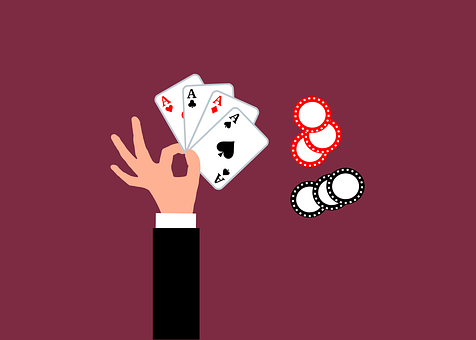
Good Texas Holdem players have that underrated but important habit of always reviewing their performance after a session. Thus, it should go without saying that you should adopt this habit too.
However, assessing your own game can be difficult if you don’t know which things you should be taking note of. To help you out with that, here is some free Texas Holdem advice on which aspects you need to pay attention to when reviewing your performance:

1. Betting patterns
Look for any patterns in your betting that may be giving away information to your opponents. For example, do you tend to bet more when you have a strong hand? If so, your opponents may be able to use this information to their advantage. Also, check if your betting patterns help you win bigger pots. If not, then you may want to consider changing them.
2. Playing style
It’s important to review your playing style, as it can reveal a lot about your overall strategy. Are you too aggressive? Too passive?
Also, your playing style can tell your opponents a lot about your hand strength. If you are constantly raising pre-flop with a wide range of hands, your opponents will know that you are likely to have a strong hand when you raise. On the other hand, if you are tight and only raise with premium poker hands, your opponents will be less likely to call your bets.
If you don’t like how your opponents can quickly get a read on you, then you may want to consider knowing how to change your playing style on the fly. This way, you can keep your opponents guessing and increase your chances of winning pots. However, learning how to do so can take much time, effort, and experience, but it will be worth it once you’ve mastered it.

3. Bluffs
Take a close look at the hands where you have bluffed and see if you can avoid making patterns in the future. For example, if you have been bluffing with weak hands in early position, your opponents will catch on to this quickly, and you will start bleeding chips. On the other hand, if you are constantly bluffing with strong hands in late position, your opponents may start folding more, and you will be able to win pots without even having the best hand.
4. Your bankroll
It is one of the most important aspects of Texas Holdem, so you should always pay attention to it. Make sure you are not risking too much of your bankroll on any one hand, as this can lead to ruin if things go against you.
Also, review your overall winnings and losses for each session. It will help you determine if you are a winning or losing player in the long run. If you consistently lose, you will need to find out why and make some changes. On the other hand, if you are winning more often than not, you may be able to take some risks and increase your profits.
5. Hand selection
Reviewing your hand selection and adjusting accordingly to it is integral to becoming a successful poker Texas Holdem player. Your hands are what you’ll be reviewing the most. Doing so can help you identify any leaks in your game. Are you playing too many marginal hands? Are you getting involved in too many pots with weak hands? If so, you will likely lose money in the long run.

6. Table selection
Another critical factor that you should review is table selection. Check if you chose tables with players of a similar skill level. After all, if you are a beginner, it wouldn’t make sense to sit at a table with professional players. Likewise, sitting at a table full of beginners is likely unprofitable growth-wise if you are a seasoned player.
7. Mental game
Your mental game can have a significant impact on your Texas Holdem performance. So, try to recall if you could control your emotions at the table, as it likely affected your decision-making ability during the session.
It’s also important to check if you managed to stay focused throughout the entire session. If you find that you are losing focus, try to determine what caused it and see if there’s anything you can do to avoid it in the future.

8. Table position
Try to recall if you’re playing according to position. For example, are you only raising pre-flop with premium hands when you’re in late position? If so, your opponents will know they can safely fold their marginal hands when you’re in the pot.
On the other hand, are you only playing weak hands in early position? If so, you’re likely to get raised a lot and need a good hand to stay in the pot.
9. Reads
Finally, think about the reads you made during the session. Did you correctly identify your opponent’s hand strength? If not, why not? It’s crucial information that can help you improve your game in the future.
If you feel like you’re not reading your opponents correctly, taking a break from Texas Holdem and working on your observation skills may be helpful. Some many books and articles can help you improve your ability to read people.
Another way to improve your ability to read opponents is through constant practice. The more hands you play, the better you’ll become at making accurate reads. So, don’t be afraid to get out there and play as often as you can.
Online Texas Holdem is an excellent way to get as much online poker practice as possible. It is because you can play a large number of hands in a short amount of time. So, sign up at GGPoker, the world’s largest poker room, where you can play Texas Holdem 24/7.
Review your sessions right
So there you have it, the things you should be taking note of when reviewing your Texas Holdem performance. By focusing on these areas, you can quickly identify leaks in your game and work on fixing them. As a result, you’ll be a stronger player and will likely see an improvement in your results.
 Skip to content
Skip to content





